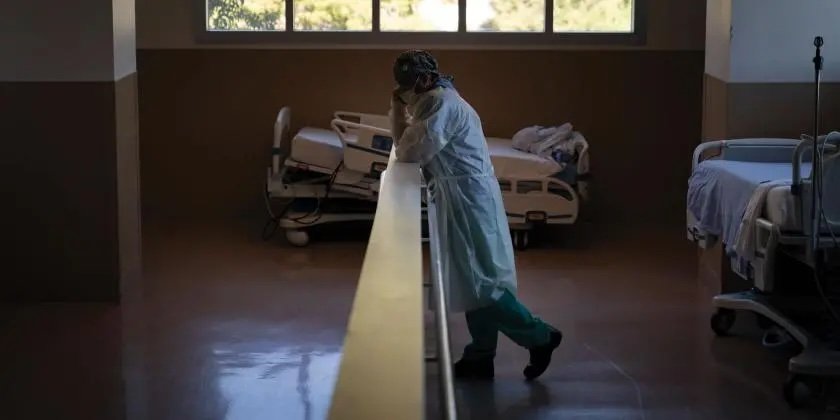National Physician Suicide Awareness Day
From Silent Suffering to Systemic Solutions: Charting a Path Toward Physician Well-being.
Four hundred times each year, a physician turns their exquisite understanding of anatomy, physiology, or pharmacology away from healing and against themselves, dying by suicide. As a psychiatrist, that number is unacceptably, wrenchingly high.
As someone with expertise in occupational distress – and this will be shocking – I marvel that the number is not higher, and that action toward change is limited and long delayed. The former is a testament to the profound resilience of physicians managing in toxic systems; the latter, a collective willingness to take them for granted.
Not only is change the compassionate and correct thing to do for clinicians, it will lead to better care and better outcomes for patients. But to be effective, that change must be systemic and urgent.
The Current Climate
The past decade has been a quest to understand the deep dissatisfaction expressed by too many colleagues. In hundreds of conversations with physicians, key themes have arisen: they were drawn to the noble ideals of the profession, like selfless service, compassion, and healing. And they love their patients and the work they do, but find the sludge, abrasion, productivity pressures, loss of autonomy, and deprofessionalization of current health care environments intolerable. Their noble ideals, once so powerful, are eroding in the face of healthcare’s business realities.
The pendulum of healthcare focus has swung too far in favor of business priorities.
Patients, physicians, and in fact, all clinicians have suffered. The COVID-19 pandemic laid bare the gaps in healthcare that, for years, clinicians bridged with their altruism. Surely, they expected, change would follow once those vulnerabilities were exposed. It did not. Now, physicians are demoralized and eyeing the exits, or feeling hopelessly trapped, as demand from an older, sicker US population grows on the horizon.
It is time for a correction.
What Does Change Look Like?
“Better” organizations provide excellent care to patients in ways that are sustainable for clinicians. They are what I encountered recently, for the first time in years:
An affable human scheduled the appointment, not a cumbersome portal
A pleasant receptionist greeted me, instead of a kiosk
A curious physician listened and tailored diagnostics to account for my particularities
A team supporting the physician followed up on the plan the very next day, ensuring everyone was informed and moving forward.
The standout in that encounter? Human connection was central to every step.
Physicians who must prioritize productivity, profit, and process over relationships with their patients become alienated from the core values that brought them to the profession. When we insert technology or processes between people, it dehumanizes the relationship. Reclaiming our profession, solidifying our identities as physicians and the noble ideals we imagined, means reclaiming the primacy of relationships, both with our patients and with each other.
Patients in relational and responsive systems show up for their appointments at higher rates, adhere to their treatment plans, follow-up when they should, and tell their friends about the great care they received. That improves patient outcomes, and it’s good for business. Moreover, physicians working in those systems, where they, too, have their professional needs met by affable, curious, supportive leaders and colleagues, do better, too. They’re no longer fighting for their oath, fighting the system for their patients, and compromising their professional identities.
What Can We Do?
Physicians are human. They are vulnerable to mental health, substance use, and intense episodic life stressors, like anyone else.
We must ensure they have equal access to destigmatized mental health care with safe harbor protections.
Yet, we also must find the courage to acknowledge that a good portion of their suffering avoidably arises from how our healthcare delivery and payment systems are structured. We chose to design the systems as they are, which means we can choose differently.
It is time to advocate for organizations with relational, responsive, and restorative just cultures that are care-facilitating and aligned with the Hippocratic Oath. Those organizations sustainably support healthier physicians (and other clinicians), leading to better health for us all. They are also an essential preventative measure against physician suicide.

